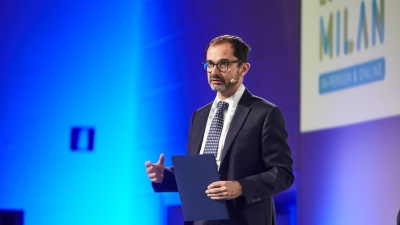Can Artificial Intelligence Replace College Teachers?

AI, by its nature, lacks the emotional intelligence and empathetic understanding that human teachers bring to the educational environment. The intricate nuances of human emotions and the ability to connect with students on a personal level contribute significantly to the learning experience.
Addressing the emotional and psychological needs of students requires a depth of understanding and compassion that AI struggles to replicate. For more complex tasks like addressing the emotional aspects of students’ challenges, seeking personalized support from human writing services can provide valuable assistance. You can find a list of such services at urbanmatter.com/buy-essay-online-5-best-sites-to-purchase-cheap-college-essays. This human touch, whether through writing assistance or emotional support, remains integral to the holistic development of students in an educational setting.
Teaching isn’t a straightforward, static task: it involves dynamic decision-making driven by real-time interactions and contextual factors in the classroom environment. Human teachers possess an uncanny knack for adapting their methods on-demand according to students’ changing needs and the dynamics of the learning environment; AI systems may struggle with such intricate decision-making in such ever-evolving learning spaces.
The integration of AI into education raises several ethical considerations that warrant careful scrutiny. Concerns such as data privacy, algorithmic bias, and exacerbating existing inequalities in education require comprehensive ethical frameworks. Trusting AI with educational responsibilities necessitates conducting an exhaustive investigation of its ethical implications to ensure it serves students without perpetuating biases or breaching privacy.
As we consider AI’s place in education, its implications must be carefully considered to ensure its ethical implementation into educational systems and ensure an inclusive experience for all. Finding ways to balance technological developments with ethical considerations and human educators’ talents is imperative in creating an education landscape that truly meets the needs of learners with diverse abilities and provides them with equal educational experiences.
Looking into the future, AI in education suggests that wholesale replacement of college teachers remains unlikely in the near future. A more likely scenario calls for collaboration, where AI serves as an adjunct educator alongside human educators — freeing teachers up from mundane routine tasks to focus more time on personalized interactions, mentoring relationships, and nurturing creativity among their pupils. Education looks set to evolve into one where AI works alongside human educators for an enriching and personalized experience of education for both children and educators alike.
As we navigate the evolving landscape of education infused with artificial intelligence, the potential for transformation is undeniable. While AI brings efficiency and innovation to the learning experience, certain aspects integral to human teaching, like emotional intelligence and nuanced decision-making, continue to elude complete replication; instead of envisaging AI as a replacement for college teachers, a more nuanced perspective positions it as a valuable supportive tool. Striking a harmonious balance between technological advancements and the irreplaceable human touch remains pivotal for unlocking the full spectrum of benefits that AI can bring to education. As we tread this path, the synergy between technology and human expertise stands out as the catalyst for a truly enriched and holistic educational journey.
AdvertisementShare this article:



